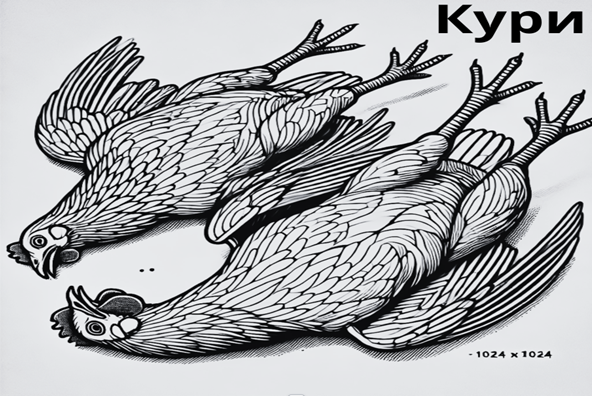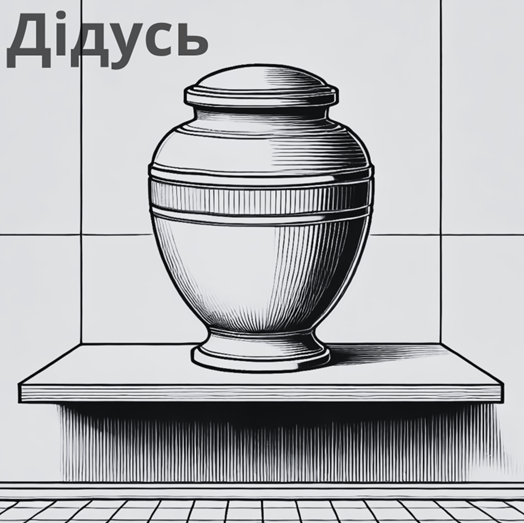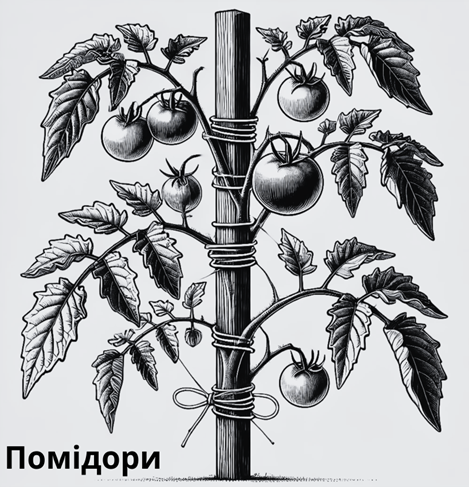Zbigniew Szmyt
All images generated by AI using ChatGPT

Perhaps now he’s no longer in despair. He’s patiently waiting for a chance to return home. To whatever remains of it. Somewhere out there, “in the war zone”… Who knows, I think to myself – maybe it’s already part of the territory occupied by the aggressor state. – May that bastard just drop dead – I whisper, half to myself, cursing Putin in a sort of improvised therapy, chasing away dark thoughts. I still need to keep the interview going.

– He’s in an urn. He still hasn’t been buried. He’s waiting until someday they can go back. And of course, if they had the chance… I don’t know. Honestly, I haven’t been in touch with them for about six months, because the grandson had already moved out. He left his grandparents in the hotel. His girlfriend got pregnant, they wanted their own place. They only had about fifty square meters – a small living room, that’s all. They couldn’t take the grandparents in. But as far as I know, it’s a matter of transport. They knew it was his dream. – And where do they keep him? I mean, the urn? – I press on, though I’m not sure if a deceased person’s interim address falls under my research scope.
– Here, in a nearby town, at the grandson’s place in the living room. It’s been on a special shelf for over a year, just waiting. It has to be high up, so the child won’t knock it over, because the kid must be toddling around by now
– He died unexpectedly, quietly. In the morning, he had breakfast and, as usual, went about weeding, and watering. He fussed around four tomato plants. Dorota had cordoned off a little patch of land in front of the hotel so they’d have something to do. They turned it into a tiny echo of the homestead they’d spent their entire long lives tending, somewhere out there, “in the war zone.”
– May that motherfucker rot, may it bloat, that filthy khuylo – I mutter like an old witch, as though by uttering these curses I might banish the war from this old man, his wife, and their four wilted tomato plants. I mutter on while Dorota continues.
– They took some pastries and went upstairs. He sat down in an armchair and died of a heart attack. And now what? You can’t get a doctor so quickly, and you know how the protocol goes.
In a moment, there is a wedding on the ground floor and a corpse upstairs. – You probably wanted to get rid of him before the wedding guests came crashing in. Discreetly, so no one would see – I assume.
– The grandson was off somewhere. As for his wife, well, she’s difficult to communicate with. What to do? Sorry, but the man’s just sitting there, dead in a chair. It’s not like you can simply leave him there for two days. Sure, sure. But it’s… well, confronting death that suddenly, it’s not a pleasant memory. I tried calling – just on my own – wondering whether to call an ambulance so they could officially confirm it. But the ambulance would come, confirm the death, then we’d still need a doctor for the paperwork. Right now, there are only paramedics, and they don’t do that kind of documentation.
I nod in sympathy, like a horse at its manager, and Dorota picks up momentum.
– It was so absurd it was almost unreal. Finally, I was like: Who do I call? The Voivode Office? Who’s going to pronounce him dead? I can’t keep a corpse in an armchair in the hallway – people are distraught in the rooms next door, terrified, because everyone knew them. To be honest – though it sounds inhuman and awful – it would have been easier just to carry him out in front of the building and call the ambulance, saying someone was lying on the street. But how to carry him out without ruining the party? There was a wedding downstairs in the banquet hall, and we’d be hauling a body right through their celebration? We had to do it discreetly. It was so absurd, I had no idea what to do. Finally, our district official arranged for a doctor to come and declare him dead, fill out all the paperwork, and then on behalf of the family, we found a funeral parlour. Let me tell you – that funeral home was fantastic. Half an hour, maybe an hour, in and out. They took him down the back stairs, whisked him away so quietly that nobody at the wedding even noticed; real pros.

– Tomatoes will remain after us – I repeat mindlessly under my breath – In spring, I have to turn the soil, set out the seedlings…
Waiting For The Return, Like For Godot
I never got the chance to speak with the older gentleman from Ukraine. He moved out to stay with his grandson before I began my research. I don’t even know his name. At the small hotel in a village in Greater Poland they simply called him “Grandpa,” and sometimes, with a touch of tenderness, “Gramps.” His wife was referred to just as “Grandma.” Grandfather was still waiting for an opportunity to return to Ukraine. Exactly where – no one knows. No one remembered the name of the village he came from. Most likely, it was somewhere in the East.

